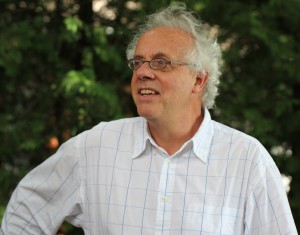 “Sex and death are the only things that can interest a serious mind,” said W B Yeats, so, although more of a flippant than a serious mind, I return to death after my last pondering on the subject that spread literally across the globe. I’m asking whether it would be better to live to 75 or to 150, and if you know me at all you will know my answer.
“Sex and death are the only things that can interest a serious mind,” said W B Yeats, so, although more of a flippant than a serious mind, I return to death after my last pondering on the subject that spread literally across the globe. I’m asking whether it would be better to live to 75 or to 150, and if you know me at all you will know my answer.
I’m asking the question because a friend sent from America two interesting articles that address the question.
One is written by the oncologist and ethicist Ezekiel J Emanuel and explains why he wants to die at 75. It is much more shocking for an American than a Brit to write this because, as Emanuel explains, the US is the land of what he calls “the American mortal.” The American mortal is “obsessed with exercising, doing mental puzzles, consuming various juice and protein concoctions, sticking to strict diets, and popping supplements and vitamins, all in a valiant effort to cheat death and prolong life as long as possible.” The American mortal believes in the theory of “compression of morbidity,” which says we can live ever longer but with less disability. It is, writes Emanuel, “a quintessentially American idea.”
In fact, as Emanuel shows, the evidence suggests that the period of life spent in disability is lengthening. Here are the bitter fruits of modern medicine, purchased at vast expense. Healthcare “hasn’t slowed the aging process so much as slowed the dying process.”
The reward for the health faddism of most American immortals is a long period of decline, loneliness, suffering, and endless encounters with the health system; so much better, argues Emanuel, to die at 75. He picks 75 because by that age “creativity, originality, and productivity are pretty much gone for the vast, vast majority of us.” He wants to be remembered by his children and grandchildren as “active, vigorous, engaged, animated, enthusiastic, funny, warm, loving, not stooped and sluggish, forgetful, and repetitive, constantly asking ‘What did she say?’”
Emanuel is opposed to assisted suicide, so he won’t be having himself “put down” at 75. Rather he will stop preventive activities in his 60s and refuse all curative treatments, including antibiotics, after 75. “If I develop cancer,” he writes, “I will refuse treatment.” He’s an oncologist, remember, my kind of oncologist.
In California they think differently. Dr Joon Yun, physician turned investor, is offering $1 million as The Palo Alto Longevity Prize. The winners will have to end aging by restoring the homeostatic capacity. Yun believes that declining homeostatic capacity causes aging and all the disabilities associated with it. A normal 25 year old has only a one in a 1000 chance of dying from outside forces each year, so without homeostatic decline a thousand year life span is possible.
But for now, Yun is settling for 150 years and thinks that Emanuel’s bleak prescription is “laughably outdated.”
I lived in Palo Alto, the home of Stanford University, for a year from 1989 to 1990, and it is a remarkable place. Everybody is over six feet tall, with perfect teeth, and either a millionaire or a Nobel prize winner (a little poetic licence, I acknowledge). I would go a month and never see anybody smoking. Nobody was obese. Nobody was ugly. It’s a land, the home of Google, where everything is possible and death is optional.
But what exactly will we do for 150 years? Can we live in the same way?
“We’ll likely,” says Sonia Arrison, a trustee of the Singularity University in California, “have serial long term relationships, more changes in friendships, more marriages. The nuclear family will be less common.” And what about careers? I could have gone on as editor of The BMJ until 2072, making way for Fiona when she was about 140.
The beauty of California is that you can reinvent yourself at a moment’s notice. You are almost expected to. You wake up one morning and think, “I’m fed up of being Richard Smith, living here, being married to X, and doing job Y.” By the afternoon all will be changed. But will we have the energy to keep reinventing ourselves for 150 years? Yun has no doubt we will.
Another worry, however, is the longevity divide. Already the divide between the rich whites of Atherton (an even richer place close to Palo Alto) and the poor blacks of East Palo Alto is 20 years, but once the new technology to lengthen life becomes available the divide may grow to 90 years. Most Californians won’t worry about this as it gives their poor black neighbours something to dream about and aim at, but countries, like Britain, that put more value on solidarity may rebel.
You will make up your own mind about how long you want to live, but Emanuel’s formula can be put into action right away while you will have to wait for Yun’s longevity technology. And we might even as a society decide to adopt Emanuel’s formula and stop offering curative treatments to everybody over 75. There’s another outrageous idea, one that might solve the NHS’s financial problems at a stroke (pun intended).
Richard Smith was the editor of The BMJ until 2004. He is now chair of the board of trustees of icddr,b [formerly International Centre for Diarrhoeal Disease Research, Bangladesh], and is also a trustee of C3 Collaborating for Health.
Competing interest: RS is 62.
